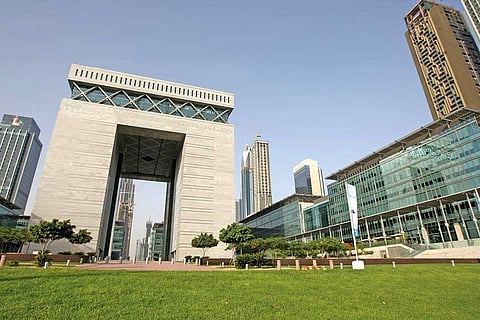Dubai turns key private wealth hub as global finance makes pivotal shift
Global private wealth hits $471 trillion, growing 8x faster than public wealth since 1995

Dubai: Dubai is rapidly consolidating its position as a magnet for private wealth and capital as global finance undergoes a profound structural shift away from public markets, according to a new report released by the Dubai International Financial Centre (DIFC).
The report, Future of Finance: Shift to Private Capital, highlights how private markets are set to eclipse $30 trillion in assets by 2030, driven by demand for stable, higher-yielding returns. Global private wealth has already soared to a record $471 trillion – expanding eight times faster than public wealth since 1995 – with a $124 trillion intergenerational wealth transfer expected over the next two decades.
Global wealth on the move
Public markets are shrinking and concentrating, the report notes, with the number of listed U.S. stocks having halved since the mid-1990s. A handful of tech giants now dominate equity wealth, raising risks for investors. As equities and bonds increasingly move in tandem, traditional diversification is losing effectiveness, prompting investors to seek alternatives in private equity, private credit, infrastructure and venture capital.
Private markets have outperformed public benchmarks over the past 25 years, offering an “illiquidity premium” of 2–4% on long-term returns. Institutional investors are rewriting playbooks with “Total Portfolio” strategies that blend public and private assets, while wealthy individuals and family offices are turning to private deals, sustainable investments, and technology-driven opportunities.
What is Dubai’s appeal?
The report argues that Dubai offers the “best of both worlds” – the institutional strength of developed markets and the dynamism of emerging economies. Ranked 12th in the 2025 Global Financial Centres Index, Dubai now sits alongside New York, London and Paris as a global financial leader.
The UAE is set to welcome a net 9,800 millionaires in 2025, the world’s highest inflow, underscoring Dubai’s attraction as a wealth destination. Today, the city is home to more than 81,000 millionaires, 237 centimillionaires and 20 billionaires.
DIFC itself has become the epicentre of this growth. By mid-2025, it hosted 7,700 active firms – up 25% year-on-year – including over 440 wealth and asset managers, 85 hedge funds, and 1,000 family businesses. Assets under management in DIFC climbed 58% in 2024 to reach $700 billion, with private capital playing a growing role.
Among those choosing Dubai as a base are PIMCO, Cambridge Associates, Naya Capital, Baron Capital and TVM Capital. DIFC has also launched specialised platforms including its Funds Centre and Family Wealth Centre, while pioneering regulations for private credit and bankruptcy.
Global investment is next
The report underscores that Dubai is not only attracting capital but shaping global investment flows. International partnerships reinforce this role: IPEM, the world’s leading private capital marketplace, will hold its first Middle East preview at DIFC in December 2025, followed by a landmark edition during Dubai Future Finance Week in 2026.
Antoine Colson, CEO of IPEM, said Dubai’s combination of long-term vision, strong regulation and thriving family office community makes it “the natural home” for the expansion of private capital networks.
The Future of Finance report makes clear that as trillions of dollars shift into private hands and private markets, Dubai is positioning itself as one of the few financial centres globally capable of bridging institutional strength with entrepreneurial energy. In doing so, the emirate is not just keeping pace with global change – it is actively driving it.
Sign up for the Daily Briefing
Get the latest news and updates straight to your inbox



